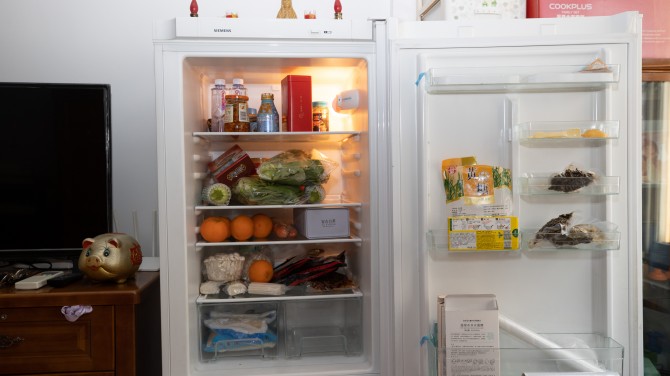
The People's Government of Foshan Municipality
Source:newsgd.com 2023-01-09
Can refrigerators cause coronavirus infection or a second infection? Is it necessary to completely clean the refrigerator after COVID recovery? How to clean it? What should I do if I buy frozen foods again?
Zhong Yuwen, deputy director of the Disinfection and Vector Biology Prevention and Control Institute of Guangdong Provincial Center for Disease Control and Prevention, and Xiang Dongming, director of the Hospital Infection Management Department of the Fifth Affiliated Hospital of Southern Medical University, responded to these FAQs.

(Photo: Xinhua)
Refrigerators do not cause a second infection after COVID-19 recovery
Q: Is it necessary to clean the refrigerator after recovery? Why?
Zhong: It depends on whether the infected people have used the refrigerator. If the patients did not wear masks when opening the refrigerator, coughed or talked loudly, the virus may remain inside and may remain active for a relatively long time. The potentially contaminated items need to be cleaned and disinfected. Coronavirus is mainly transmitted through the respiratory tract, and the possibility of getting it through the refrigerator is very small. Usually, it is at risk when we touch it with our hands, and then touch the eyes, mouth, and nose.
Xiang: If there are uninfected family members or frequent guest visits, it's suggested to clean the refrigerators. Novel coronavirus may survive for a long time in a refrigerator's humid, low-temperature environment, so those uninfected people may be exposed to the virus through the refrigerator. Please wash hands regularly and heat food thoroughly before eating.
Q: Will the virus in the refrigerator cause a second infection after recovering from COVID-19?
Xiang: Current research shows that the longest survival time for coronavirus can reach 28 days, and in general it will wither away within 14 days. For the same strain, the antibodies produced after infection are protective within 3-6 months, so people are less likely to be reinfected with the virus remaining in the refrigerator in a short period of time.
Q: How to clean the refrigerator?
Zhong: For the internal surface of the refrigerator, turn the refrigerator off before disinfection, let it return to room temperature, and wipe the internal surface with 75% alcohol or disinfectant containing 500-1000mg/L of effective chlorine. Then clean it with water after 30 minutes.
As for the foods stored in the refrigerator, those with packaging can be washed directly, or wiped and disinfected twice with 75% alcohol. Foods without packaging can be handled by steaming and heating. For foods that cannot be steamed, such as fruits, wash them before eating. In terms of foods that people don't want to keep, residents can sort them out according to domestic waste classification.
It's less likely to be infected through frozen foods.
Q: How to deal with frozen foods after cleaning the refrigerator? Is there a high risk of exposure to the virus?
Zhong: Having cleaned the refrigerator, people are advised to keep the refrigerator clean and tidy during daily lives, regularly clean and disinfect the refrigerator, and wash hands after touching frozen products.
Buy frozen products in the supermarkets or markets instead of unlicensed channels.
There is evidence that coronavirus can be transmitted through cold chain food. However, generally speaking, infections caused by contaminated items must have a relatively large amount of virus and require long-term, repeated contact.
As long as residents develop hygienic habits before and after contact with frozen foods in daily lives, it is less likely that they will be infected through frozen products.
Q: What other household environments need to be disinfected?
Xiang: Viruses can be detected on items that people often use, such as toilets, door handles, tableware, textiles, and TV remote controls. For recovered people who live alone, or whose family members have all been infected, although they already have antibodies against the virus remaining in the family environment, it is necessary to reduce the transmission of the virus via disinfection.
Zhong: The key areas for disinfection are the isolation room and toilet of the positive family member. Household garbage such as paper towels and masks used by positive infected individuals should be packed in double-layer garbage bags and disinfected. Clothes, bedding, towels and other fabrics should be washed with fabric disinfectant, and dried in the sun for 3-4 hours.
Copyright © The People's Government of Foshan Municipality All rights reserved.Government hotline:0757-12345
网站标识码:4406000048